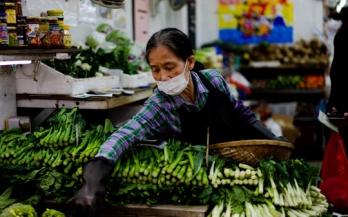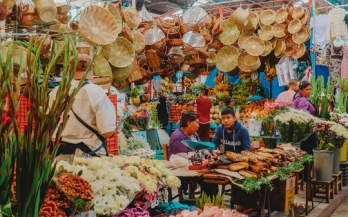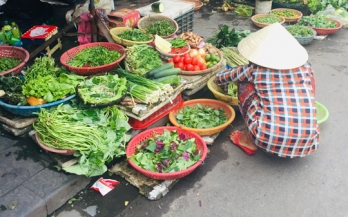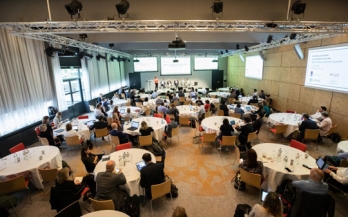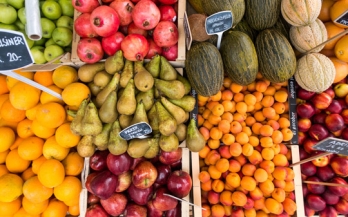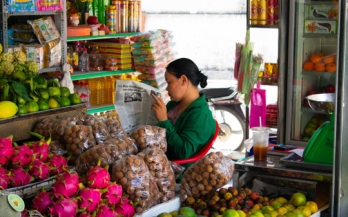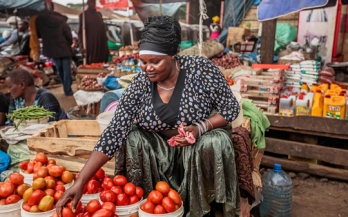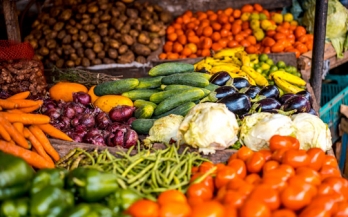These document series summarise some rapid assessments undertaken by the Global Alliance for Improved Nutrition (GAIN) to understand early impacts of the COVID-19 coronavirus pandemic on food systems in a set of low- and middle-income countries where GAIN works (Bangladesh, India, Pakistan, Indonesia, Mozambique, Ethiopia, Kenya, Tanzania, Rwanda, and Nigeria).
These document series summarise some rapid assessments undertaken by the Global Alliance for Improved Nutrition (GAIN) to understand early impacts of the COVID-19 coronavirus pandemic on food systems in a set of low- and middle-income countries where GAIN works (Bangladesh, India, Pakistan, Indonesia, Mozambique, Ethiopia, Kenya, Tanzania, Rwanda, and Nigeria).
These document series summarise some rapid assessments undertaken by the Global Alliance for Improved Nutrition (GAIN) to understand early impacts of the COVID-19 coronavirus pandemic on food systems in a set of low- and middle-income countries where GAIN works (Bangladesh, India, Pakistan, Indonesia, Mozambique, Ethiopia, Kenya, Tanzania, Rwanda, and Nigeria).
The Building Business Contributions for the 2020 Global Nutrition Summit conference in The Hague took place as part of Workstream 2 on food systems, which is coordinated by the UK Department for International Development (DFID) and the UN Food and Agriculture Organization (FAO).
Nutrition programmes within commodity value chains provide a unique opportunity to improve health outcomes for workers, farmers, their households, and communities. They bring benefits to communities, businesses, governments, and markets. In order for these programmes to be viable in the long term, businesses need to be willing to invest, and the business case for doing so must be understood.
This paper posits the urban food environment as an extremely useful policy-making framework for developing actions to improve nutrition, as it is the point at which people and food interact. It describes the nutritional challenges of urban areas and how urban food environments influence nutrition through the affordability, physical access to, convenience and desirability of healthy foods.
The world is urbanising rapidly, and malnutrition in urban areas (including both undernutrition and overweight/obesity) is an increasing problem. City policymakers in all countries are well placed to address urban malnutrition by virtue of their access to a wide variety of policy-level entry-points to food access and physical activity.
Fighting malnutrition in all its forms is one of the major challenges of the 21st century. Addressing it will require an agricultural transformation. Within Africa, this must include a focus on small and medium-size farms, which provide about 80% of total calories in sub-Saharan Africa, as well as other small actors along the value chain.
The SUN Business Network (SBN) / Global Alliance for Improved Nutrition (GAIN) are conducting a pilot project with the International Food and Beverage Alliance (IFBA) to support the replacement of industrially-produced trans-fatty acids (iTFA) by local companies in Nigeria and Pakistan.
Food supply chains are challenged to deliver affordable, safe and nutritious food. GAIN has developed a tool for analysing specific supply chains identify weaknesses or bottlenecks and suggesting potential interventions to improve nutrition along the supply chain, i.e. Supply Chain Analysis for Nutrition (SCAN). Supply chains structure how goods and services move from producers to consumers and are key components of the food system.
